10 Health Benefits Of Coconut Water, Nutrition, & Side Effects
From promoting heart health to curing a hangover, this natural elixir is a godsend.
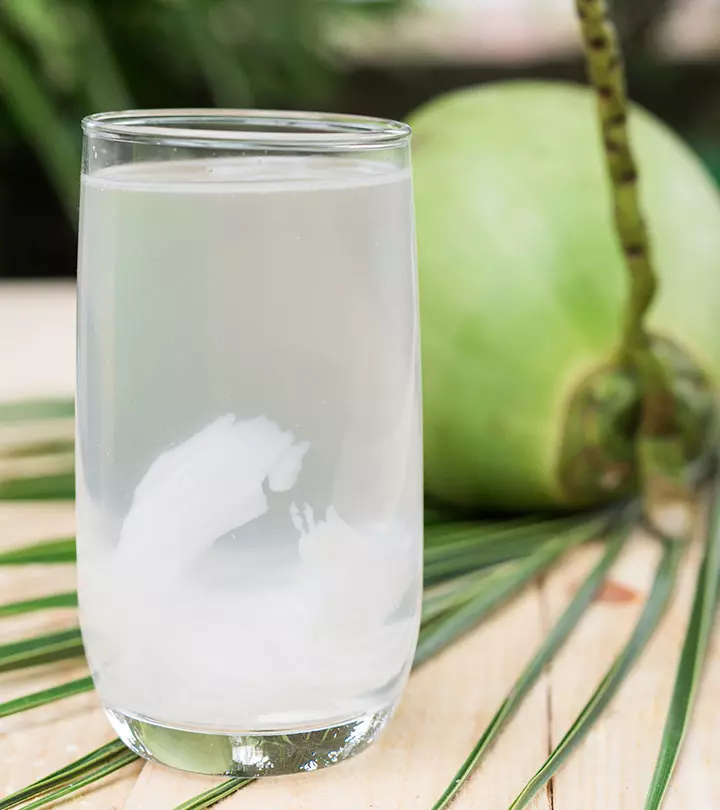
Image: Shutterstock
The benefits of coconut water could be attributed to its electrolytes and other essential nutrients. This trendy low calorie beverage is also incredibly refreshing.
Its benefits are not limited to just the summers when you want to quench your thirst on a scorching afternoon. It also boosts heart health, potentially treats acne, and has more to offer. Read on.
 Know Your Ingredient: Coconut Water
Know Your Ingredient: Coconut WaterWhat Is It?
A liquid that is produced within the tender green coconut.
What Are Its Benefits?
It can help regulate blood glucose and cholesterol levels, improve digestion, treat kidney stones and prevent acne.
Who Can Use It?
Coconut water can be consumed by both adults and children alike. It is also a healthy drink for pregnant women and lactating mothers.
How Often?
Water from 1 tender coconut a day is the recommended dose.
Caution
Excessive consumption may result in hyperkalemia or potassium toxicity. Also, chronic kidney disease or diabetes patients must consult a doctor before consuming coconut water daily.
In This Article
What Is Coconut Water?
Coconut water is the clear, refreshing liquid found inside young, green coconuts. It is a natural beverage that is popular for its remarkable health benefits and delicious taste.
Unlike coconut milk that is extracted from the flesh of older coconuts, coconut water is a naturally-occurring liquid. It is a rich source of potassium, sodium, and magnesium (1). This makes it a fantastic choice for rehydration, particularly in hot climates.
The taste and composition of coconut water can vary depending on the coconut’s age and variety. While some enjoy its pure, slightly sweet flavor, others find it to be an excellent base for smoothies or cocktails.
Scroll down to the next section to learn about the rich nutritional profile of coconut water.
Key Takeaways
- Coconut water contains natural sugars, vitamins, minerals, amino acids, and more to boost antioxidants.
- Drinking coconut water may boost energy and improve exercise performance because of its electrolytes.
- It can also lower blood glucose levels, improve digestive health, and promote heart health.
- The antibacterial properties of coconut water make it an effective solution to treat acne and psoriasis.
What Makes Coconut Water So Good For Your Health And Skin?
Coconut water is composed of important sugars, vitamins, minerals, amino acids, and phytohormones (plant hormones that control their growth and development). It also contains inorganic ions that boost your body’s antioxidant system (1).
Coconut water may also protect against myocardial infarctioni Commonly known as a heart attack is a fatal restriction or cessation of blood supply to the heart muscle, leading to the death of tissues from oxygen deprivation. or heart attack (1). Regular intake of coconut water can relieve hypertensioni High blood pressure due to elevated blood flow force on the artery walls; blood pressure measures over 140/90. . The coconut meat (also called copra) can fight inflammation and heal wounds, just like the water (1).
Cytokinins (phytohormones) are important constituents of coconut water. These show promise in cancer treatment, though more research is being done (1).
Probably the most popular use of coconut water is as a sports drink. Research shows us how it compares with commercially sold sports drinks (2).
| Parameter | Coconut water | Sports drink |
|---|---|---|
| Carbohydrates | 4710 | 5800 |
| Calcium | 27 | 1 |
| Phosphorus | 5 | 9 |
| Sodium | 2 | 46 |
| Potassium | 204 | 8 |
| Magnesium | 6 | 3 |
Even the World Health Organization recommends coconut water for treating dehydration – especially in cases of acute diarrhea (2).
There is a lot of research going on focusing on how coconut water can benefit human health. Stating that coconut water is healthy could be an understatement – if you are not totally aware of what it can do for you.
How Does Coconut Water Benefit Your Health And Skin?
1. May Improve Exercise Performance

The electrolytes present in coconut water are key. Coconut water contains more electrolytes than conventional beverages like Cola or Sprite (3).
Coconut water offers hydrating effects similar to the usual carbohydrate-electrolyte sports drinks (4). Its effects on exercise performance were also similar to that of sports drinks. But since coconut water is a natural source of potassium and doesn’t contain added sugars and sweeteners, it might be used as an alternative to sports drinks.
Ingestion of coconut water may also be easier on the stomach as compared to conventional carbohydrate-electrolyte beverages (5). The electrolytes in coconut water can also treat muscle cramps (6).
However, check with your health coach because coconut water is comparatively low in carbs and sodium, two important nutrients for sustaining you through long-duration workouts.
Long-duration workouts cause excess sweat and loss of sodium (and not potassium). If that is what you are up for, you may also supplement with a sports drink (7). You also need extra carbs to sustain yourself – something coconut water contains in a lesser quantity.
For mild hydration and less-intense workouts, coconut water is the best bet. But if you are doing prolonged physical exercise, you must also go for a sports drink. But do check the ingredients and be wary of artificial sweeteners. You can opt for something with low-calorie sweeteners (8).
2. Promotes Heart Health
Rat studies show us that intake of coconut water can reduce blood cholesterol levels (9).
Coconut water fights the increase in total cholesterol levels. At the same time, it maintains the levels of good cholesterol (HDL).
In another study, the cholesterol-lowering effects of coconut water were found to be similar to lovastatin, an OTC drug (10). Though the amount of coconut water used in the study is too much for normal human consumption, the findings are promising.
Tender coconut water can also reduce hypertension. It achieves this by improving antioxidant status and insulin sensitivityi A term that refers to how well your body cells respond to the effects of the hormone insulin. (11).
3. May Enhance Digestive Health

The high fiber in the water can offer laxative effects. Coconut water is also a natural diuretic (12).
Coconut water works wonderfully well for treating diarrhea. It contains iron, calcium, magnesium, and manganese and has the same electrolytic balance as your blood (13). Consuming the water within one hour after an episode of diarrhea can help.
Some anecdotal evidence suggests that coconut water can also treat acid reflux. Electrolytes like potassium might promote pH balance in the body. We need more research here, though.
4. Might Help Relieve Hangovers
There is less research on this too. Your body loses potassium when you consume excess alcohol (14). Since coconut water is a natural source of potassium, hence, helps replenish this electrolyte and might minimize the horrible hangovers that usually follow. While traditional remedies like coffee and sugary sports drinks offer temporary relief, coconut water provides a more holistic approach. Unlike these alternatives, coconut water offers several advantages— it naturally hydrates, replenishes essential electrolytes, soothes the digestive system, and provides natural sweetness without harmful added sugars.
5. May Lower Blood Glucose Levels

Coconut water contains L-arginine, a compound known for its antidiabetic properties. L-arginine reduced blood glucose levels in diabetic rats (15).
Coconut water also combats oxidative stressi A condition caused by an imbalance between the creation and buildup of oxygen radicals in cells and the ability to detoxify them. – a condition quite prevalent during diabetes (16). It may also lower the levels of hemoglobin A1c, the higher levels of which increase diabetes risk (17), (18).
You can also make coconut water a part of your diabetes meal (19). It contains fiber and is comparatively low in carbs.
We suggest you only go for unsweetened coconut water. Packaged coconut water may contain artificial sweeteners.
6. May Help Dissolve Kidney Stones
In studies, coconut water intake helped expel excess potassium, citrate, and chlorine from the body (20). This can cut down the risk of kidney stones.
Treatment with coconut water had also prevented crystal deposition in the renal tissue, as per a study. It also had reduced the number of crystals in urine. Additionally, coconut water had prevented oxidative stress in the kidneys and improved renal function (21).
In addition to eliminating kidney stones, coconut water also cures bladder infections. This can be attributed to the antibacterial properties of coconut water (22).
However, there are some gray areas with respect to coconut water and kidney health. Hence, we suggest you check with your doctor before using it for this purpose.
7. May Be Useful For Blood Transfusions
The intravenous use of coconut water is well documented. In a study, coconut water was used as a short-term intravenous hydration fluid for a patient from the Solomon Islands (23).
Coconut water may mimic blood plasma. However, this effect may not last long. This is because of its sodium content – which is not high enough to stay in the bloodstream for long (24). Also, the infusion of coconut water may cause the potassium levels to go up.
8. Might Strengthen Bones
Coconut water is a good source of calcium (13). Hence, it may promote bone health.
9. Helps Treat Acne

The benefits of coconut water for the skin are widely researched. Coconut water has antibacterial properties, thanks to the lauric acid present in it (22). These properties might help treat acne.
Lauric acid was also found to exert the strongest bactericidal activity against P. acnes, the bacteria that promotes inflammatory acne (25).
10. Might Help Treat Psoriasis
There is no direct relationship between coconut water and psoriasisi A non-contagious autoimmune disorder where skin cells accumulate and develop into scales and dry, itchy areas But coconut water benefits the skin by preventing dehydration, which deteriorates skin health and can make your skin more vulnerable to issues like psoriasis (as dehydration prevents your body from eliminating toxins through your skin) (26). Many people also use coconut water for hair, as it hydrates and nourishes the scalp, soothing scalp psoriasis, thus also contributing to the healthy look and feel of the hair.
Apart from the above-mentioned benefits, the nutrients present in coconut water may boost the immune system (27). Coconut water is a healthy beverage. Most of its benefits are proven. Some aren’t. But that doesn’t have to stop you from consuming it, especially when it has an impressive nutritional profile.
What Is The Detailed Nutritional Composition Of Coconut Water?
| Calorie Information | ||
|---|---|---|
| Amounts Per Selected Serving | %DV | |
| Calories | 45.6(191 kJ) | 2% |
| From Carbohydrate | 35.6(149 kJ) | |
| From Fat | 4.0(16.7 kJ) | |
| From Protein | 6.0(25.1 kJ) | |
| From Alcohol | 0.0(0.0 kJ) | |
| Carbohydrates | ||
| Amounts Per Selected Serving | %DV | |
| Total Carbohydrate | 8.9 g | 3% |
| Dietary Fiber | 2.6 g | 11% |
| Starch | 0.0 g | |
| Sugars | 6.3 g | |
| Protein & Amino Acids | ||
| Amounts Per Selected Serving | %DV | |
| Protein | 1.7 g | 13% |
| Vitamins | ||
| Amounts Per Selected Serving | %DV | |
| Vitamin A | 0.0IU | 0% |
| Vitamin C | 5.8 mg | 10% |
| Vitamin D | ~ | ~ |
| Vitamin E (Alpha Tocopherol) | 0.0 mg | 0% |
| Vitamin K | 0.0 mcg | 0% |
| Thiamin | 0.1 mg | 5% |
| Riboflavin | 0.1 mg | 8% |
| Niacin | 0.2 mg | 1% |
| Vitamin B6 | 0.1 mg | 4% |
| Folate | 7.2 mcg | 2% |
| Vitamin B12 | 0.0 mcg | 0% |
| Pantothenic Acid | 0.1 mg | 1% |
| Choline | 2.6 mg | |
| Betaine | ~ | |
| Minerals | ||
| Amounts Per Selected Serving | %DV | |
| Calcium | 57.6 mg | 6% |
| Iron | 0.7 mg | 4% |
| Magnesium | 60.0 mg | 15% |
| Phosphorus | 48.0 mg | 5% |
| Potassium | 600 mg | 17% |
| Sodium | 252 mg | 11% |
| Zinc | 0.2 mg | 2% |
| Copper | 0.1 mg | 5% |
| Manganese | 0.3 mg | 17% |
| Selenium | 2.4 mcg | 3% |
| Fluoride | ~ | |
*Values sourced from USDA database, nuts, coconut water
This shows coconut water is replete with most of the essential nutrients. But does this mean you can have as much of it as you want?
Probably not.
How Much Coconut Water Can You Take In A Day?

Let’s start with why. Why do you need to keep a check on the amount of coconut water you consume in a day?
This takes us to the case of a 42-year-old man who developed dangerously high potassium levels, which eventually lead to abnormal heart rhythms and temporary unconsciousness (28).
He had reported drinking eight 11-ounce bottles of coconut water in a single day. He was rushed to the hospital where he underwent treatment.
Excess intake of coconut water can cause severe hyperkalemia (potassium toxicity) (28). Eight ounces (about 226 grams) of coconut water contains about 600 mg of potassium. The RDA for potassium is 2,600 mg to 3,400 mg (29).
Water from a single coconut yield amounts to about 206 grams. This means drinking the water from an average-sized tender coconut must give you about 515 mg to 600 mg of potassium (30).
If you have chronic kidney diseasei A progressive kidney damage disorder where the organ's blood filtering efficiency is reduced over time leading to excess waste remaining in the body . or diabetes, you must take extra caution (31). Have water from one tender coconut once every two days after consulting your doctor.
There is not enough data on the daily upper limit for coconut water. But, looking at the statistics we just discussed, stick to one tender coconut a day. Lack of potassium is rare, and you might be getting enough of it through your diet (32).
 Quick Tip
Quick TipAlso, sipping through the coconut fruit is not the only way to consume coconut water. There are other ways too.
How Else Can You Take Coconut Water?
If plain coconut water is boring, we have something for you. Dubbed the Coconut Lemon Quench, this recipe is as hydrating and refreshing as it gets.
What You Need
• 2 tablespoons each of fresh lemon juice and lime juice
• 1 ½ cups of coconut water
• 1 tablespoon of honey
• ½ teaspoon of grated ginger root
• A pinch or two of sea salt
Directions
1. Blend all the ingredients in a blender.
2. Serve or store in the refrigerator for up to two weeks.
We also suggest you eat the coconut kernel and not just drink the water. The kernel protein can lower cholesterol levels. It also decreases the metabolism of fat in the liver and intestine (33).
But even before you think of drinking the water or eating the kernel, you need to know how to pick the right coconut.
What Is The Best Coconut Water To Buy?
Coconut water in a fresh, green coconut is the best bet. It contains no added sugars or preservatives.
Steer clear of those with a hard brown shell. This indicates maturity. The young green ones contain a larger supply of the water.
You can shake the fruit to gauge the amount of water it contains.
Follow these tips, and you are good to go. You can enjoy a fresh green coconut every single day.
Khyati Jain, a yoga trainer, details how she benefitted from drinking coconut water every day for 33 days. She replaced her empty-stomach black coffee routine with fresh coconut water after her morning walk. She felt that a cup of coconut water gave a fuller feel. She added, “Another food that helped me with leg cramps is coconut water. My performance Improved, and I was able to hold yoga poses for longer (i).” She also noticed an improvement in skin dryness after being on this coconut water diet.
 Quick Tip
Quick TipCoconut water might also have certain undesirable effects on some people.
What Are The Side Effects Of Coconut Water?
- Concerns With Cystic Fibrosis
Cystic fibrosis is an inherited disorder that damages the lungs and the digestive system. This condition can lower salt levels in the body, requiring patients to take pills or fluids to boost blood sodium levels.
If you have cystic fibrosis, please do not depend on coconut water alone for your sodium intake as it contains less of it. The best way to go about it is to take coconut water with a pinch of salt (34).
- May Cause Hyperkalemia
We have discussed this already. Excess intake of coconut water can cause hyperkalemia (28). Please limit your intake to one tender coconut a day.
- Might Cause Kidney Issues
Yes, coconut water can help treat kidney stones. But individuals with chronic kidney disease must avoid coconut water due to its high potassium levels (35).
- May Lower Blood Pressure Way Too Much
Coconut water lowers blood pressure. So, there is a possibility it may lower the levels too much if you are already on medications for lowering blood pressure. Consult a doctor.
- May Interfere With Blood Pressure Control During Surgery
Due to the above-mentioned reason, coconut water might interfere with blood pressure control during surgery. This is important as blood pressure has a role to play in surgery. Avoid consuming coconut water at least two weeks before a scheduled surgery. Also, talk to your doctor about any blood pressure medications that you take (36).
Infographic: 5 Ways Coconut Water Can Boost Your Health
Coconut water is a natural source of electrolytes, making it a great option for post-workout hydration. It contains antioxidants that help protect against cellular damage and boost your immune system. Incorporating it into your daily routine can be a natural way to boost your well-being. The infographic below lists the advantages of consuming coconut water. Check it out!
Some thing wrong with infographic shortcode. please verify shortcode syntaxCoconut water is a refreshing and hydrating detox drink packed with electrolytes. It is loaded with healthy carbs, vitamins, minerals, and beneficial phytonutrients that promote good health. The benefits of coconut water range from boosting exercise performance to being a hangover cure. It is also good for your heart, digestion, and bone health. Coconut water may help manage blood sugar levels and reduce inflammation as well. However, it may cause numerous side effects, such as allergic reactions, lower blood pressure, or aggravate kidney disorders if taken in large amounts. Consult your healthcare provider before adding coconut water to your daily diet.
Frequently Asked Questions
When should we drink coconut water?
Enjoying coconut water doesn’t require a specific time. It is a nutritious tropical drink that you can consume whenever you want.
What happens if we drink coconut water on an empty stomach?
Anecdotal evidence suggests that drinking coconut water on an empty stomach helps boost metabolism and immunity.
Does coconut water increase weight?
Possibly not. A research study conducted on rats showed that long-term supplementation of coconut water may prevent body weight gain associated with menopause (36). Hence, on the contrary, it may be more beneficial to use coconut water for weight loss.
Illustration: Health Benefits Of Coconut Water, Nutrition, & Side Effects

Image: Stable Diffusion/StyleCraze Design Team
Coconut water is a great way to stay hydrated and healthy! Learn about the five benefits of this nutritious drink in the following video.
Personal Experience: Source
StyleCraze's articles are interwoven with authentic personal narratives that provide depth and resonance to our content. Below are the sources of the personal accounts referenced in this article.
i. My Journey of Drinking Coconut Water Every Morning for 33 Days — Here Are the Wonderful Resultshttps://medium.com/change-your-mind/my-journey-of-drinking-coconut-water-every-morning-for-33-days-here-are-the-wonderful-results-4c75ea9d2e45
References
Articles on StyleCraze are backed by verified information from peer-reviewed and academic research papers, reputed organizations, research institutions, and medical associations to ensure accuracy and relevance. Read our editorial policy to learn more.
- “The chemical composition and biological…” Molecules, US National Library of Medicine.
- “Coconut water” ScienceDirect.
- “Electrolytes, sugar, calories…” The Southeast Asian Journal of Tropical Medicine and Public Health, US National Library of Medicine.
- “Comparison of coconut water and a…” Journal of the International Society of Sports Nutrition, US National Library of Medicine.
- “Rehydration after exercise with fresh young…” Journal of Physiological Anthropology and Applied Human Science, US National Library of Medicine.
- “Hydration: why it’s so important” ArgonneToday.
- “Rehydration with sodium-enriched coconut water…” National Library of Medicine.
- “Trends in the consumption of…” Physiology & Behavior, US National Library of Medicine.
- “Beneficial effects of coconut water…” Journal of Medicinal Food, US National Library of Medicine.
- “Comparative evaluation of the…” Food and Chemical Toxicology, US National Library of Medicine.
- “Therapeutic effects of tender coconut water…” Asian Pacific Journal of Tropical Medicine, US National Library of Medicine.
- “Coconut water: an unexpected source of…” BioMed Research International, US National Library of Medicine.
- “Diarrhea” Columbia University Medical Center.
- “Hangover treatment” US National Library of Medicine.
- “Mature coconut water exhibits antidiabetic…” Journal of Basic and Clinical Physiology and Pharmacology, US National Library of Medicine.
- “Hypoglycemic and antioxidant potential…” Food & Function, US National Library of Medicine.
- “Study of antiglycation, hypoglycemic…” Journal of Medicinal Food, US National Library of Medicine.
- “Hemoglobin A1C test”. US National Library of Medicine.
- “Effects of coconut water…” PeerJ, US National Library of Medicine.
- “Stone disease: medical & dietary therapy” The Journal of Urology.
- “Prophylactic effect of coconut water on…” International Braz J Urol, US National Library of Medicine.
- “Antibacterial efficacy of tender coconut…” Journal of International Society of Preventive & Community Dentistry, US National Library of Medicine.
- “The intravenous use of coconut water” The American Journal of Emergency Medicine, US National Library of Medicine.
- “Can coconut water mimic human plasma?” University of Florida.
- “The antimicrobial activity…” Biomaterials, US National Library of Medicine.
- “How dehydration affects your hair…” International Journal of Recent Scientific Research
- “TENDER COCONUT WATER…” Minnesota School of Cosmetology.
- “Death by coconut” Circulation, American Heart Association.
- “Potassium” US Department of Health and Human Services.
- “ Nuts, coconut water” United States Department of Agriculture, National Nutrient Database.
- “Acute ascending flaccid paralysis…” Case Reports in Neurological Medicine, US National Library of Medicine.
- “Potassium supplement” MayoClinic.
- “Coconut kernel protein modifies the…” Plant Foods for Human Nutrition, US National Library of Medicine.
- “Preventing hyponatraemic dehydration…” Archives of Disease in Childhood, British Medical Journal.
- “A practical approach to dietary interventions…” BMC Nephrology, US National Library of Medicine.
- “High blood pressure” National Institute on Aging.
- “Long-term supplementation with young coconut juice does not prevent bone loss but rather alleviates body weight gain in ovariectomized rats” Biomedical Reports.
Read full bio of Gaelle Clement
Read full bio of Ravi Teja Tadimalla
Read full bio of Arshiya Syeda
Read full bio of Aparna Mallampalli





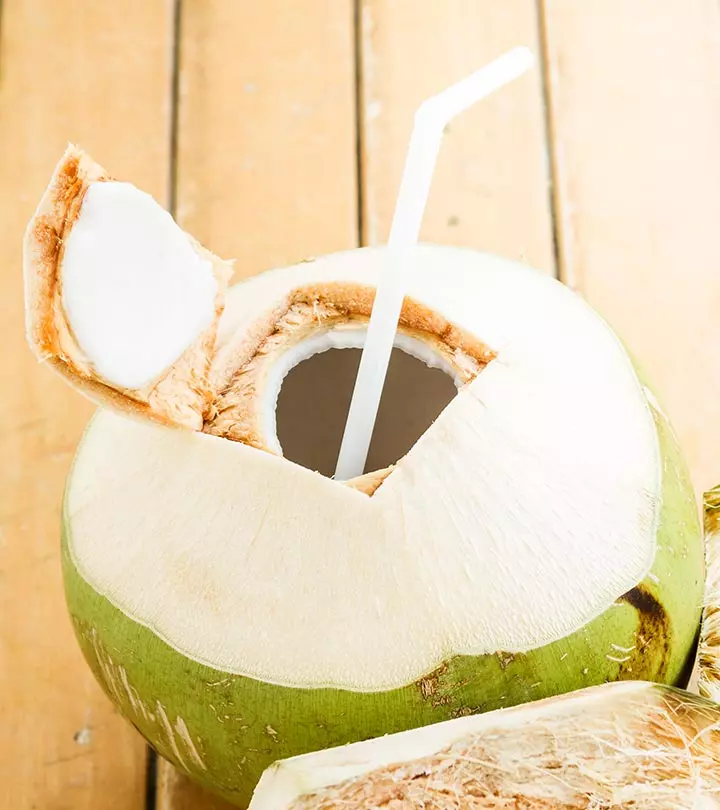
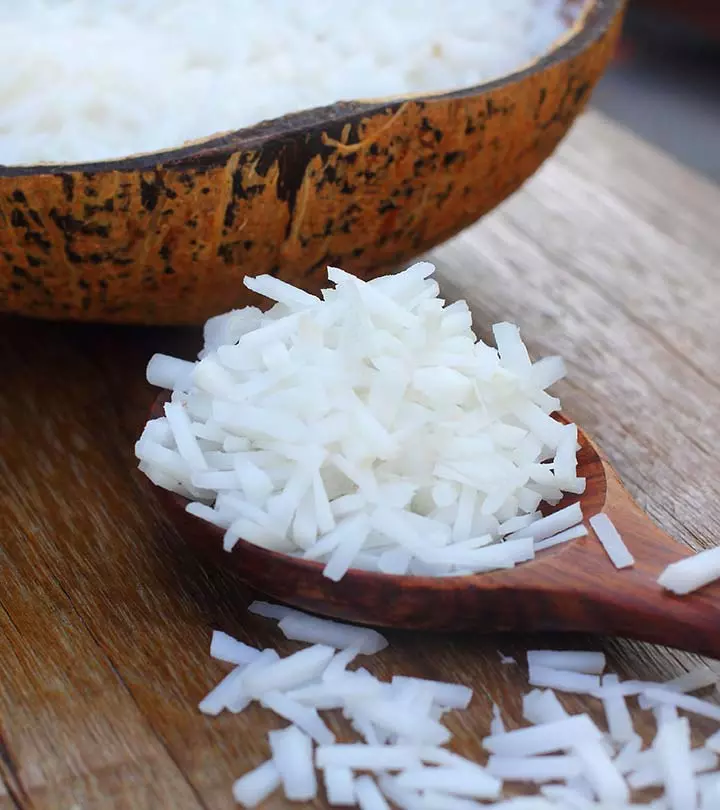

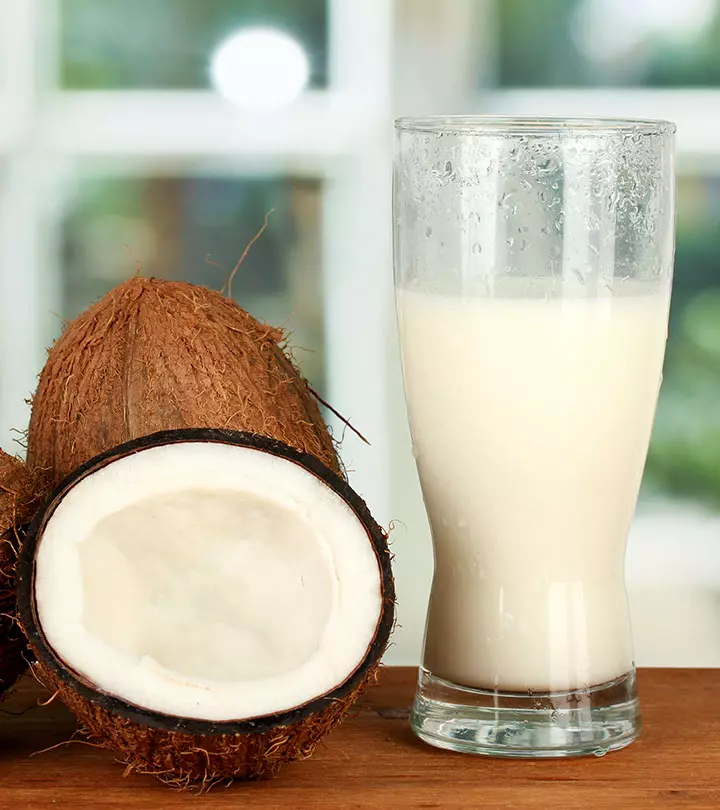

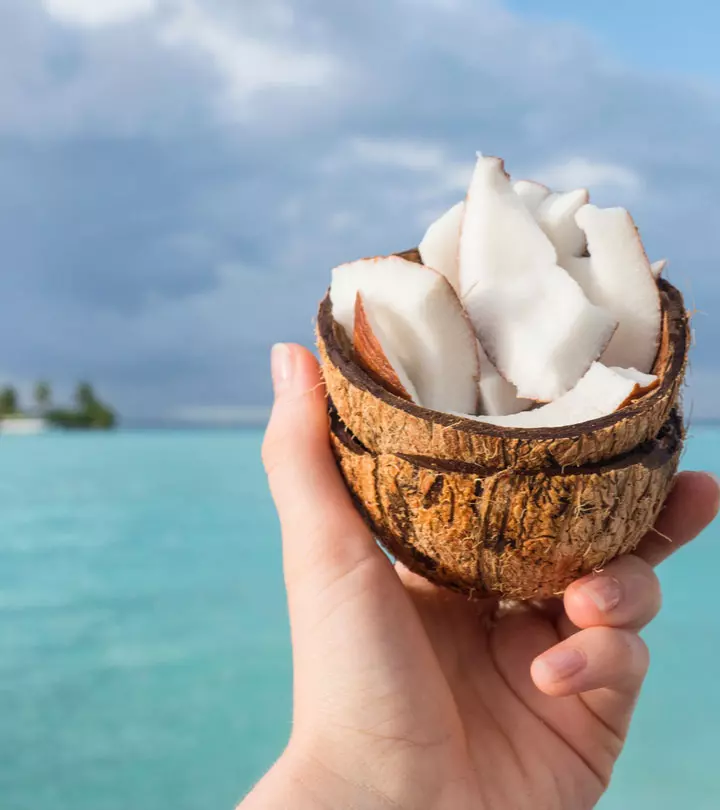
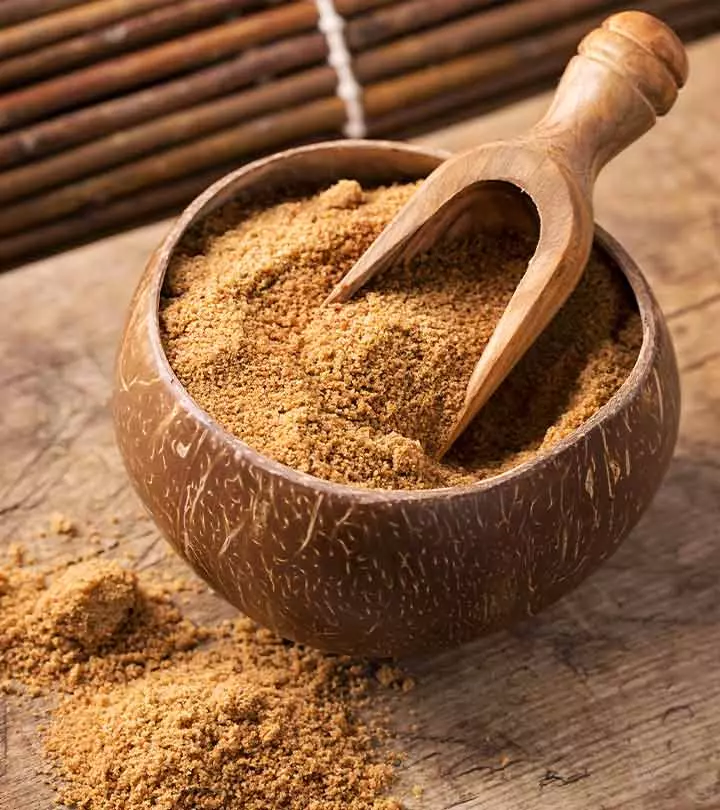
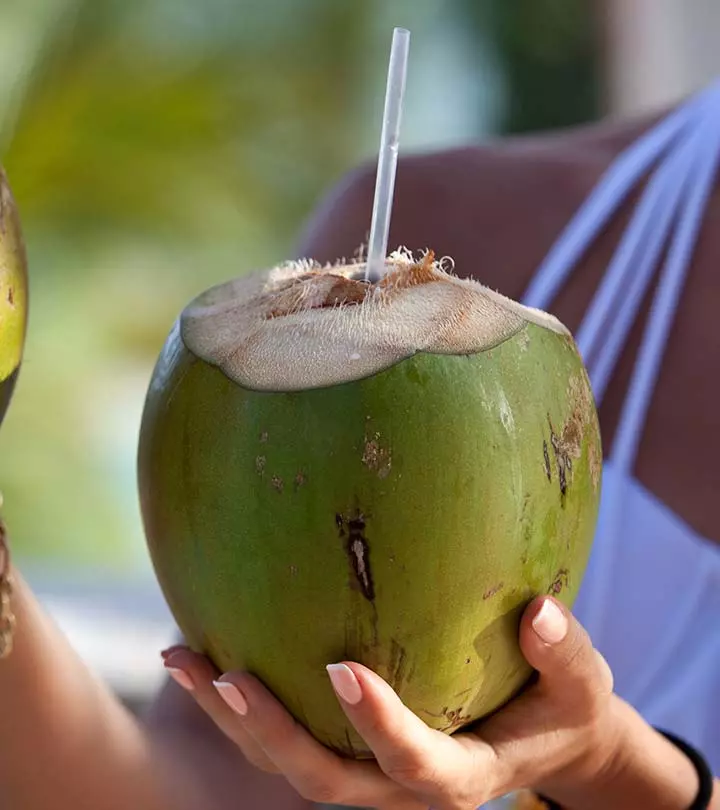
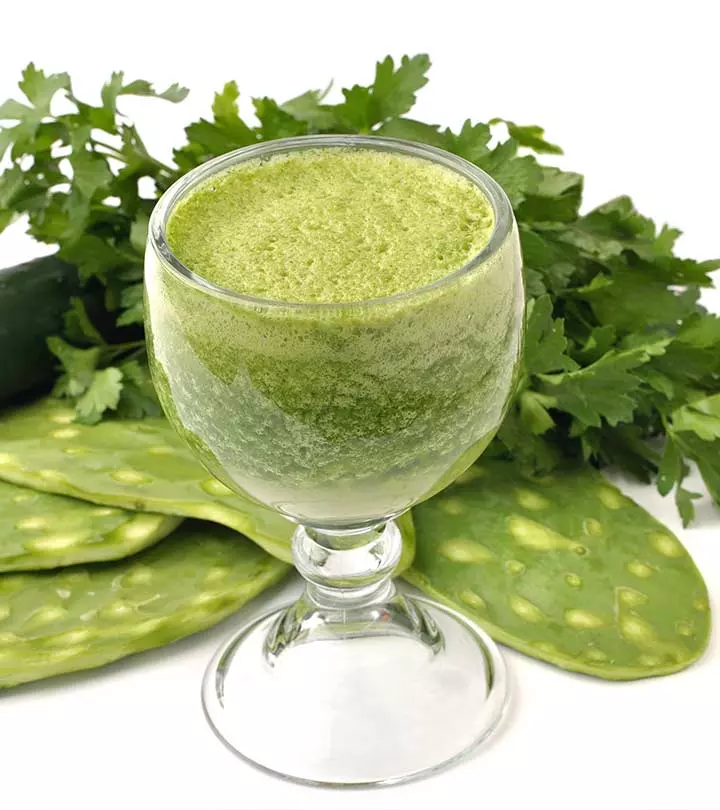

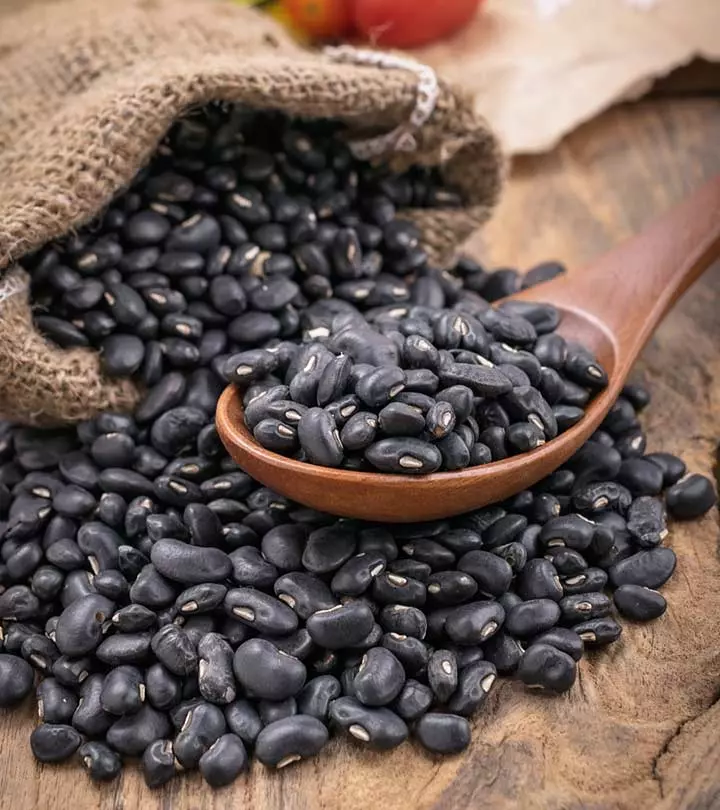

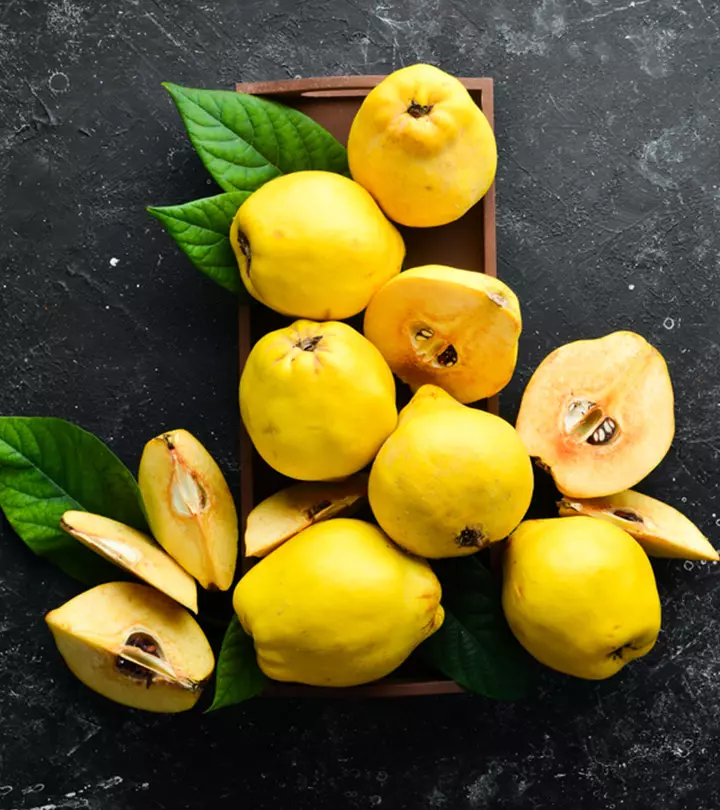

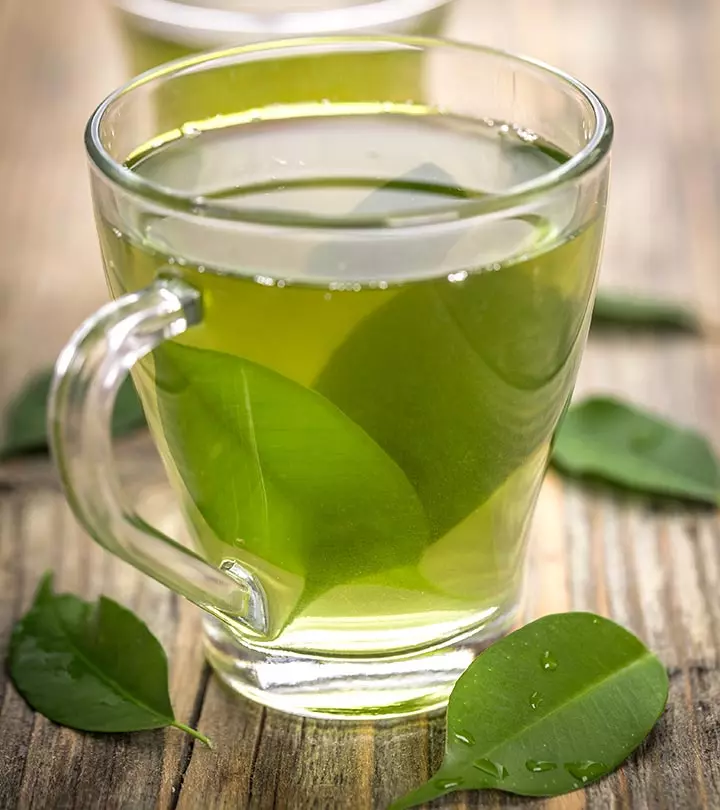
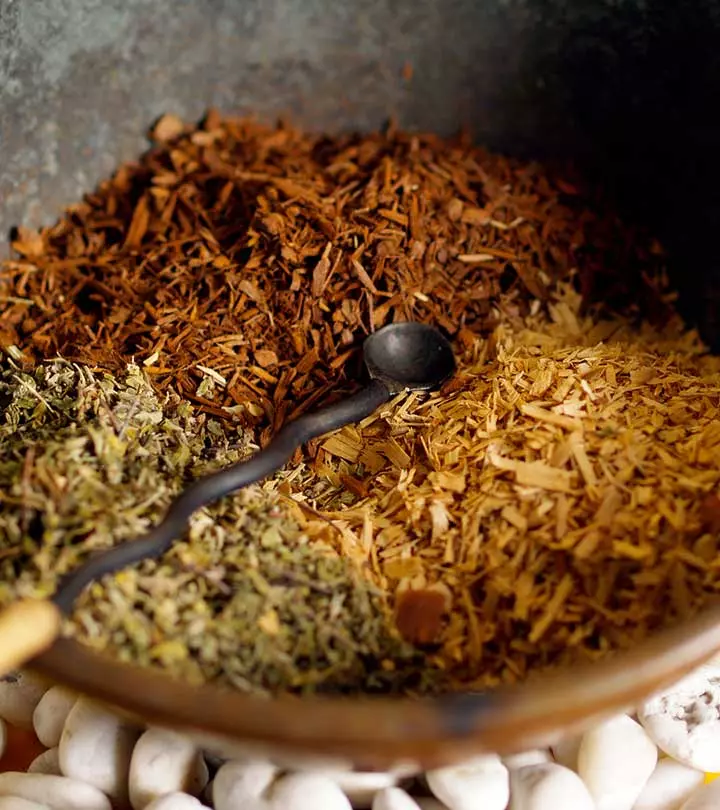
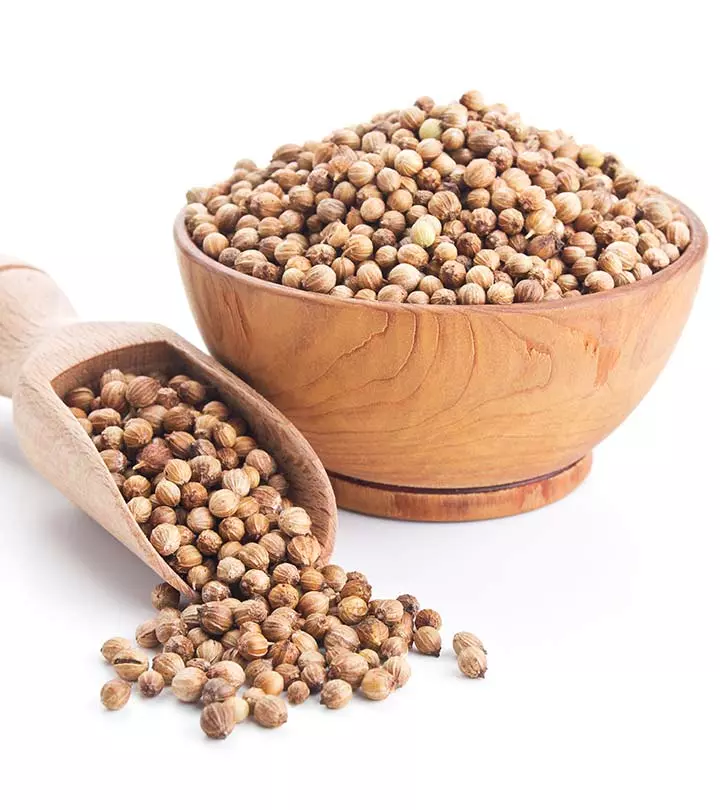


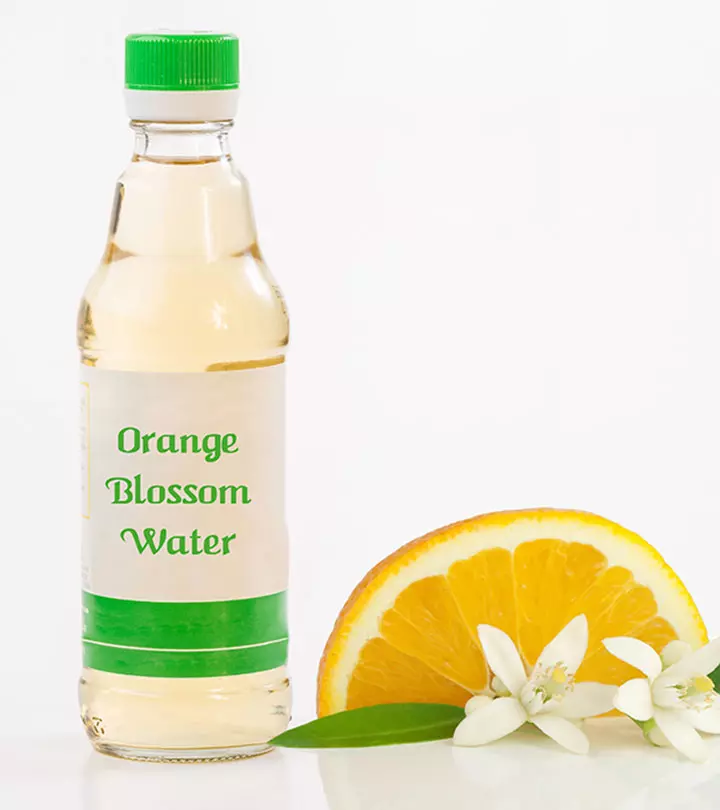
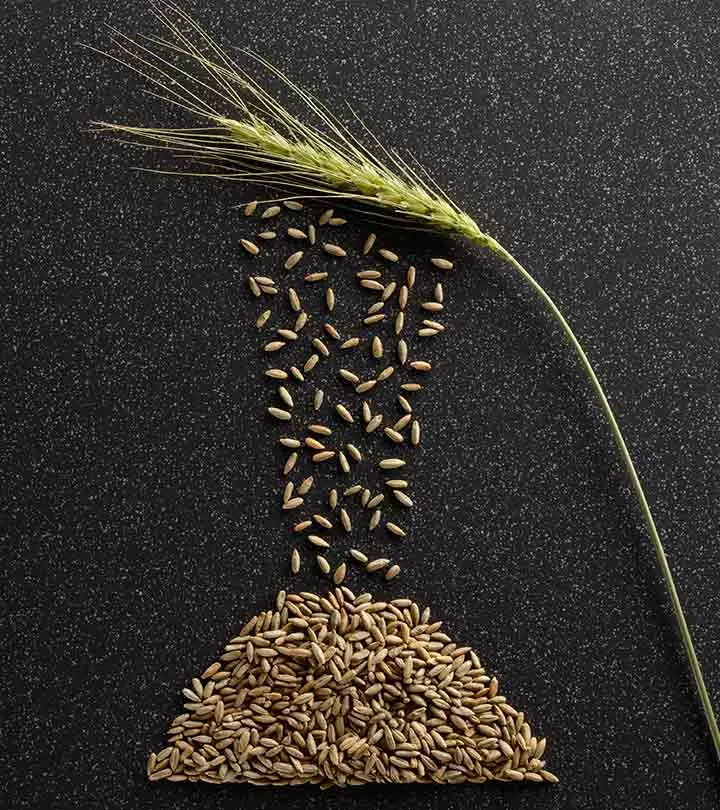
Community Experiences
Join the conversation and become a part of our empowering community! Share your stories, experiences, and insights to connect with other beauty, lifestyle, and health enthusiasts.